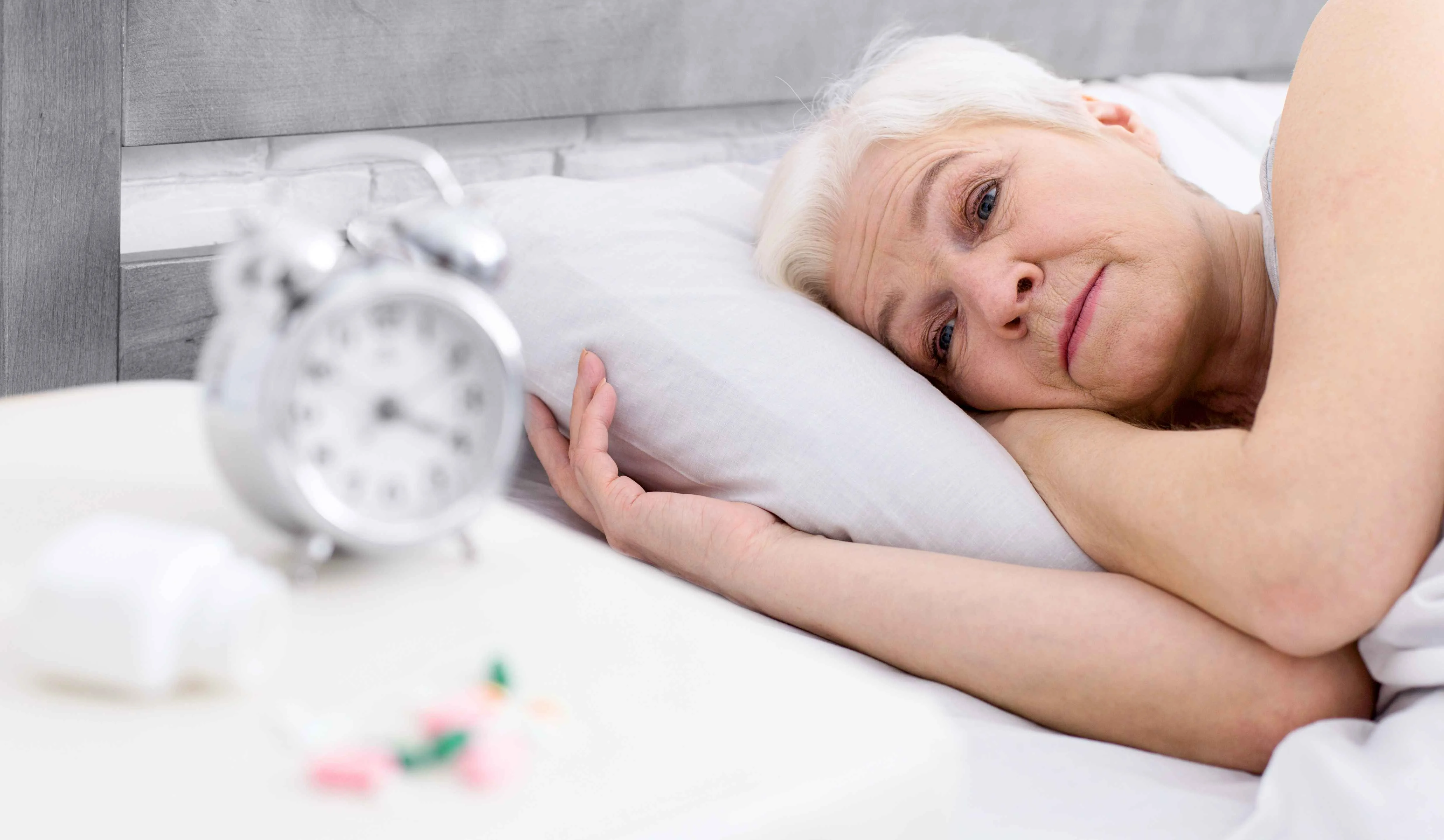Insomnia is a common issue that affects people of all ages, but it can be particularly prevalent in older adults.
As we age, changes in sleep patterns, lifestyle habits, and health conditions can make falling and staying asleep more difficult. For many seniors, insomnia can lead to daytime fatigue, mood disturbances, and a decline in overall quality of life.
Understanding the causes, symptoms, and treatment options for insomnia in older adults is crucial for improving sleep and maintaining overall health and well-being.
Insomnia and Aging
As we age, there are age-related sleep changes and our sleep patterns often change, and insomnia becomes a common concern among older adults. Insomnia, or the inability to fall asleep or stay asleep, can significantly impact an individual's overall health and well-being.
In this comprehensive guide, we'll explore the causes, effects, and solutions for insomnia in older adults, empowering you to take control of your sleep and improve your quality of life.
What is Insomnia?
Insomnia is a sleep disorder characterized by difficulty falling asleep, staying asleep, or experiencing non-restorative sleep.
There are many types of insomnia, which can be acute, lasting for a short period, or chronic, persisting for three or more nights per week for at least three months. Insomnia can have various underlying causes, including medical conditions, psychological factors, and lifestyle habits.
Prevalence of Insomnia Among Older Adults
Insomnia is a common issue among older adults; approximately one-third of individuals aged 65 and older experience some form of sleep disturbance.
The prevalence of insomnia tends to increase with age, primarily due to changes in sleep patterns, medical conditions, and lifestyle factors associated with aging.
Common Causes of Insomnia in Elderly
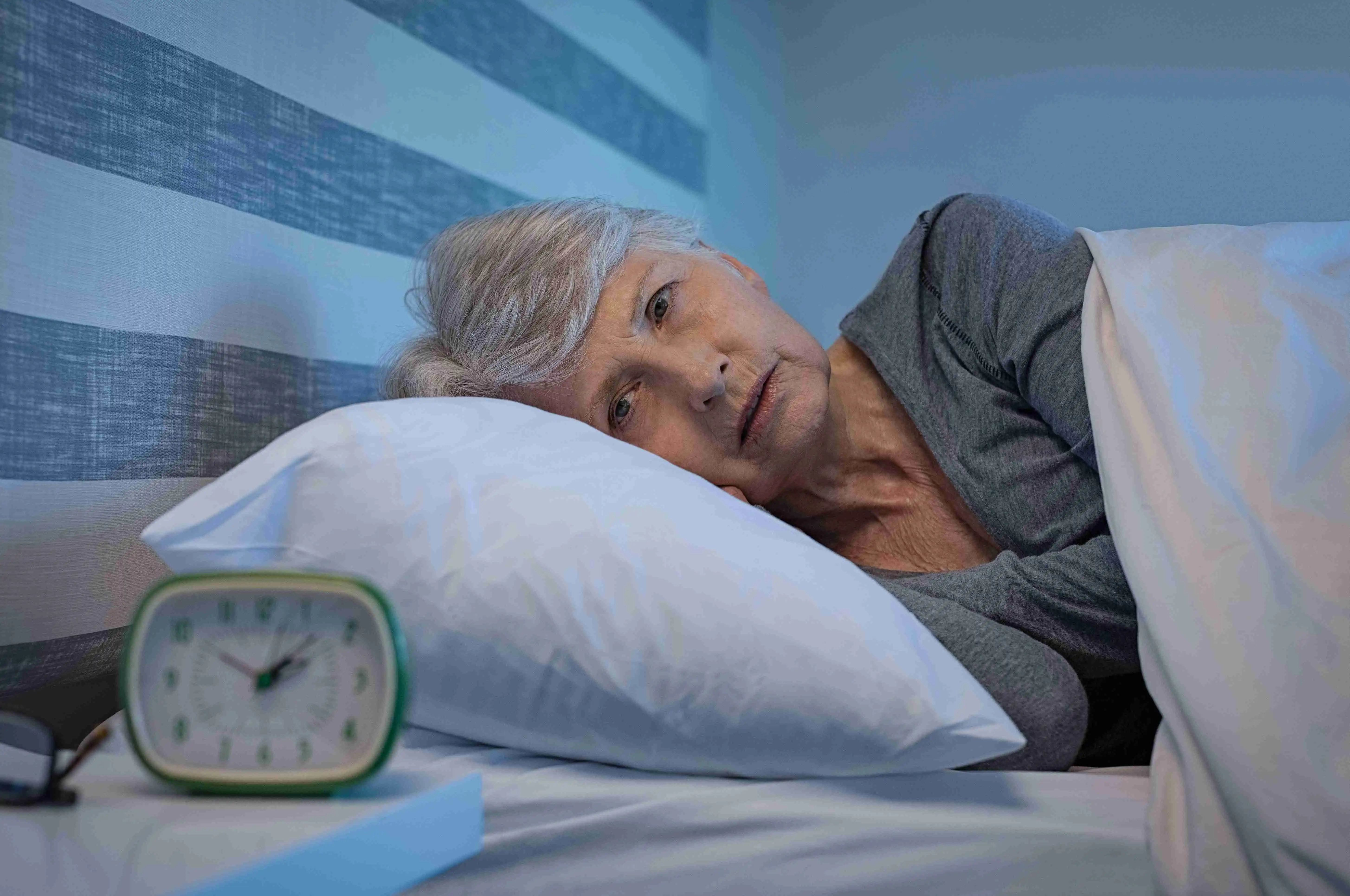
Insomnia is a prevalent issue among older adults, often resulting from a complex interplay of various factors. Understanding these causes is crucial for effective management and treatment. Let's delve into the main contributors to sleep disturbances in the elderly population:
Physical Health Conditions
As we age, our bodies become more susceptible to various health issues that can significantly impact sleep quality:
- Chronic Pain: Conditions like arthritis, fibromyalgia, or persistent back pain can make it difficult to find a comfortable sleeping position, leading to frequent night-time awakenings.
- Respiratory Disorders: Sleep apnea and Chronic Obstructive Pulmonary Disease (COPD) can cause breathing difficulties during sleep, resulting in poor sleep quality and daytime fatigue.
- Neurological Conditions: Disorders such as Parkinson's disease or dementia can disrupt normal sleep-wake cycles and cause sleep disturbances.
- Gastrointestinal Issues: Conditions like acid reflux or frequent urination can lead to discomfort and multiple awakenings during the night.
- Arthritis: Joint pain and stiffness associated with arthritis can make it challenging to get comfortable and fall asleep. You can check out our recommended mattresses for arthritis to help enhance sleep quality.
Psychological Factors
Mental health plays a crucial role in sleep quality, especially for older adults:
- Depression and Anxiety: These common mental health issues like depression and anxiety in older adults can lead to racing thoughts, worry, and difficulty relaxing, all of which contribute to insomnia.
- Stress and Worry: Concerns about health, finances, or family matters can keep the mind active at night, making it hard to fall asleep or stay asleep.
- Grief and Loss: The loss of a spouse, friend, or family member can significantly impact sleep patterns and overall well-being.
Lifestyle Factors
Certain lifestyle choices and habits can contribute to sleep problems:
- Sedentary Lifestyle: Lack of physical activity during the day can lead to restlessness at night and difficulty falling asleep.
- Irregular Sleep Schedules: Retirement or changes in daily routines can lead to inconsistent sleep patterns, disrupting the body's natural circadian rhythms.
- Consumption of Stimulants: Caffeine, nicotine, and alcohol, especially when consumed later in the day, can interfere with sleep onset and quality.
- Medication Side Effects: Many medications commonly prescribed to older adults can have side effects that impact sleep, including diuretics, antidepressants, and beta-blockers.
Age-related Changes
Natural changes that occur with aging can also affect sleep patterns:
- Decreased Production of Melatonin: As we age, our bodies produce less of this sleep-regulating hormone, making it harder to fall asleep and stay asleep.
- Changes in Circadian Rhythms: Older adults may experience shifts in their internal body clock, leading to earlier bedtimes and wake times.
- Increased Sensitivity to Environmental Factors: Aging can make individuals more sensitive to noise, light, and temperature changes, all of which can disrupt sleep.
Common Symptoms of Insomnia in Older Adults
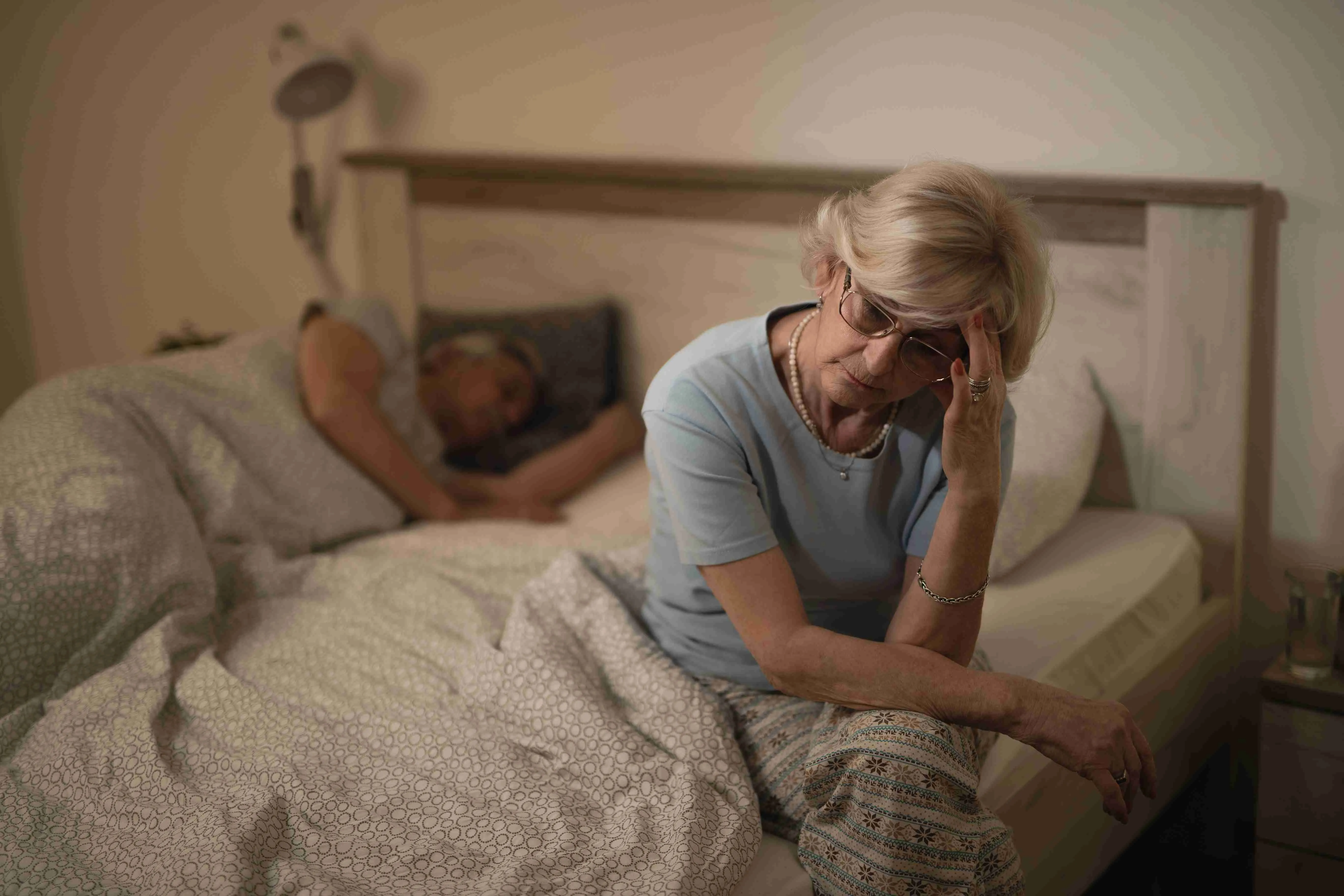
Common symptoms of insomnia in older adults include difficulty falling asleep, often taking longer than 30 minutes to drift off, and frequent nighttime awakenings that make it hard to fall back asleep.
Difficulty Falling Asleep
Older adults with insomnia often struggle to initiate sleep, even when feeling tired. They may lie in bed for extended periods, unable to relax or quiet their minds. This can lead to frustration and anxiety about sleep, further exacerbating the problem.
Waking Up Frequently
Many older individuals with insomnia experience fragmented sleep patterns. They may wake up multiple times during the night, often struggling to fall back asleep. Physical discomfort, noise sensitivity, or a need to use the restroom are just a few causes of these awakenings.
Daytime Fatigue
A common consequence of insomnia is persistent daytime fatigue. Older adults may feel exhausted, lack energy, or experience excessive sleepiness during the day. This fatigue can impact their ability to concentrate, perform daily tasks, or engage in social activities.
Mood Changes
Insomnia can significantly affect mood and emotional well-being. Older adults with sleep issues may experience irritability or short temper, increased anxiety or worry, especially about sleep, difficulty coping with stress, and reduced interest in previously enjoyed activities.
Effects of Insomnia on Older Adults' Health
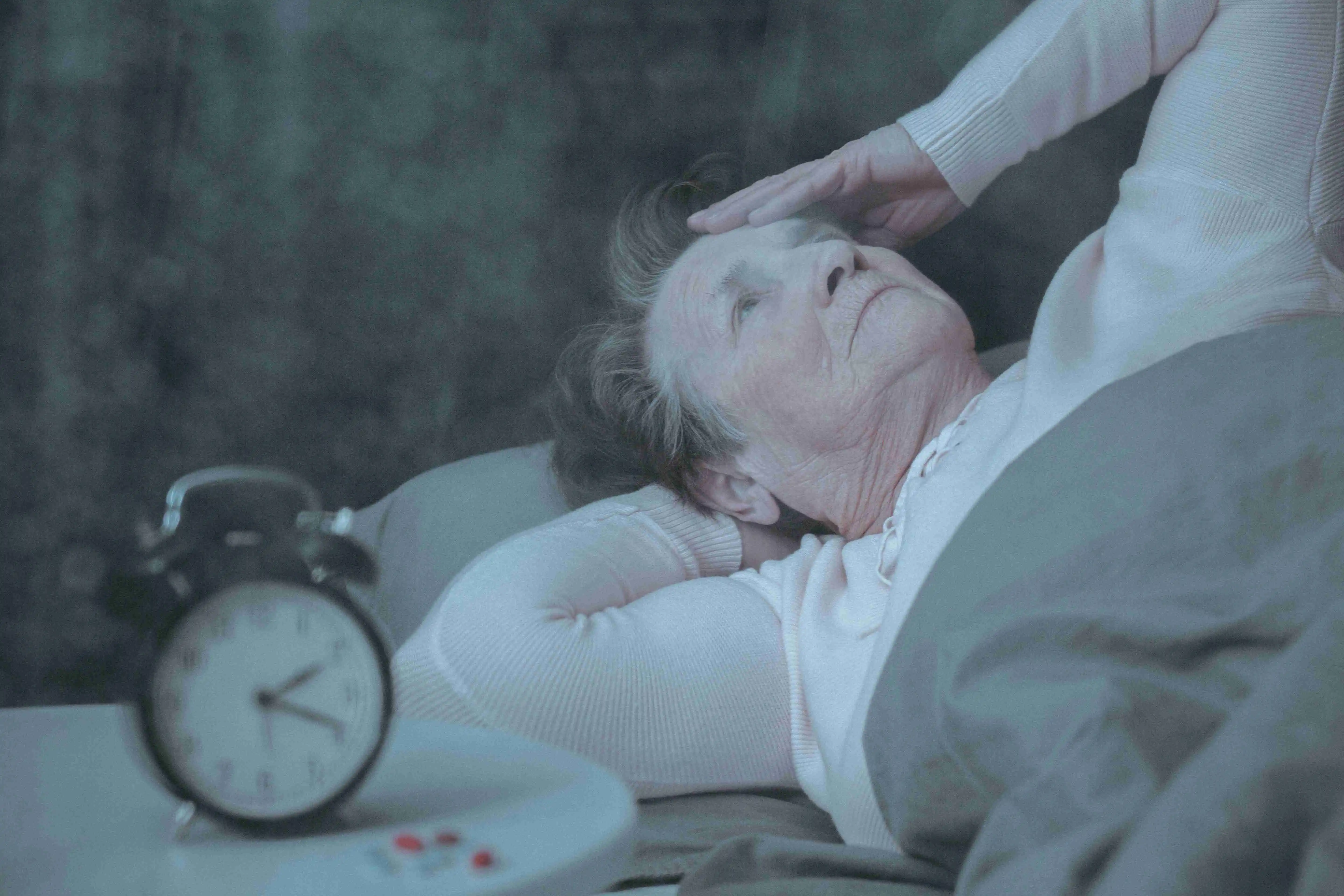
Insomnia can have far-reaching consequences on the overall health and well-being of older adults. Some potential effects include:
Fatigue and Impaired Cognitive Function
Chronic sleep deprivation due to insomnia can lead to persistent fatigue, affecting daily functioning. Older adults may experience decreased alertness, slower reaction times, and difficulties with concentration and memory.
This cognitive impairment can impact their ability to perform routine tasks, make decisions, and maintain independence.
Exacerbation of Existing Medical Conditions
Insomnia can worsen many health conditions common in older adults. For instance, poor sleep can lead to increased blood pressure, potentially exacerbating cardiovascular issues. It can also interfere with blood sugar control in diabetics and intensify chronic pain conditions.
Increased Risk of Developing Depression and Anxiety
The relationship between insomnia and mental health is bidirectional. While depression and anxiety can cause sleep problems, persistent insomnia can also contribute to the development or worsening of these mental health conditions.
Older adults with insomnia may experience mood swings, irritability, and a decreased ability to cope with stress, potentially leading to clinical depression or anxiety disorders.
Impaired Immune Function
Adequate sleep is crucial for maintaining a healthy immune system. Chronic insomnia can weaken the body's defense mechanisms, making older adults more susceptible to infections and illnesses, and slower recovery times.
This increased vulnerability is particularly concerning for seniors, who may already have compromised immune systems due to age-related factors.
Decreased Quality of Life
The cumulative effects of insomnia can significantly impact an older adult's overall quality of life. Persistent sleep problems can lead to reduced physical activity and exercise due to fatigue, social isolation as a result of mood changes and daytime sleepiness, and an increased risk of accidents, including falls, due to impaired cognitive function and balance.
Insomnia Treatment for Seniors
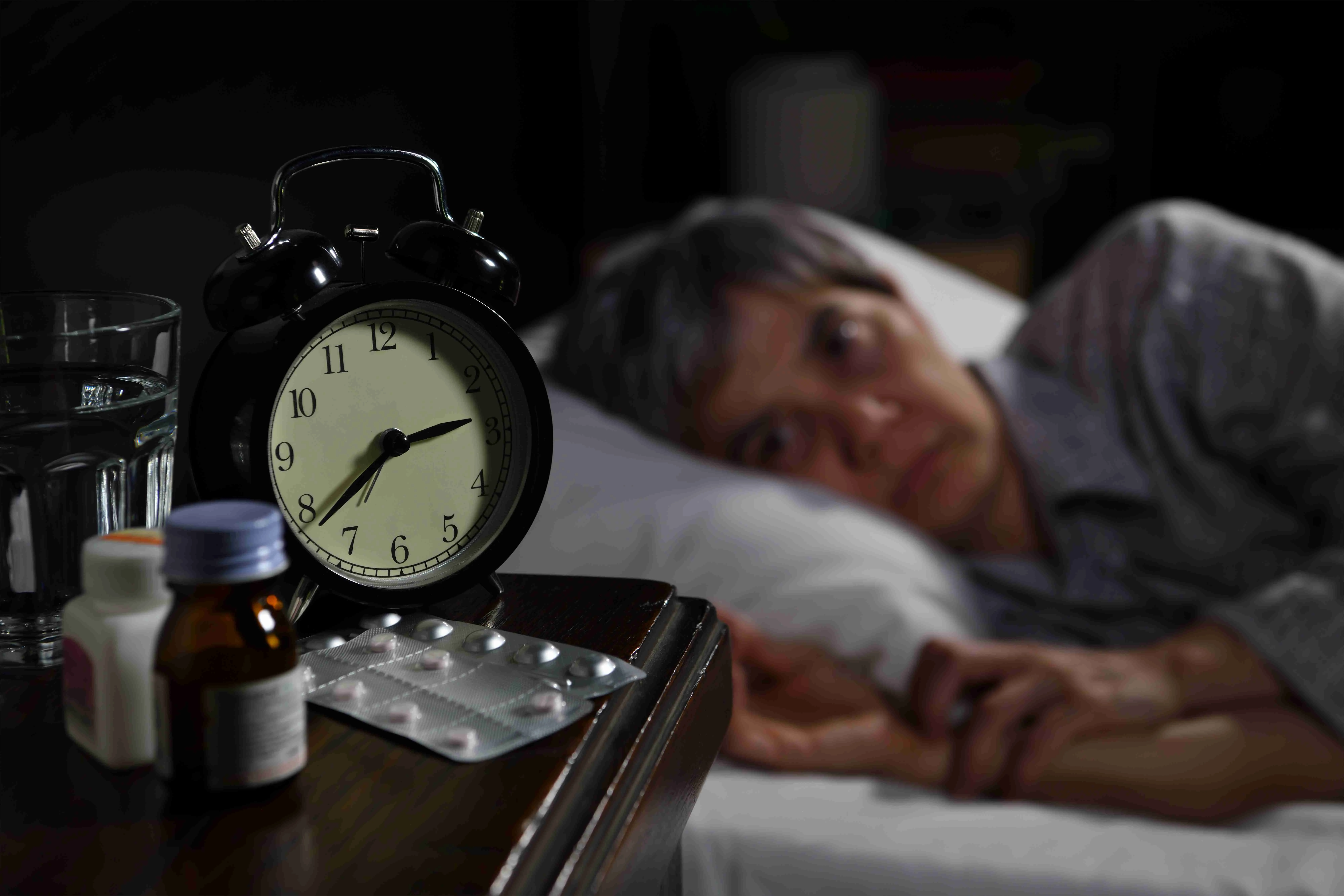
Managing insomnia in older adults requires a combination of lifestyle adjustments, behavioral therapies, and sometimes medical interventions. Here are some effective strategies:
Sleep Hygiene Practices
Establishing good sleep hygiene is crucial for older adults struggling with insomnia. This includes maintaining a consistent sleep schedule by going to bed and waking up at the same time every day, even on weekends. Creating a comfortable sleep environment with a cool, quiet, and dark bedroom can also significantly improve sleep quality.
Relaxation Techniques
Incorporating relaxation techniques into the bedtime routine can help calm the mind and prepare the body for sleep. Practice deep breathing exercises or progressive muscle relaxation to reduce tension and promote relaxation.
Try meditation or mindfulness techniques to reduce anxiety and racing thoughts that often keep older adults awake. Gentle yoga or stretching exercises specifically designed for bedtime can also be beneficial in promoting better sleep.
Regular Exercise
Physical activity can significantly improve sleep quality for older adults. Aim to engage in moderate exercise for at least 30 minutes a day, five days a week. Choose activities suitable for older adults, such as walking, swimming, or Tai Chi.
However, it's important to avoid vigorous exercise close to bedtime, as it may interfere with sleep onset. Morning or early afternoon exercise is generally recommended for better sleep outcomes.
Balanced Diet
Dietary habits can have a significant impact on sleep quality. Limit caffeine intake, especially in the afternoon and evening, as it can interfere with sleep. Avoid large meals close to bedtime, as digestion can disrupt sleep.
Stay hydrated throughout the day, but reduce fluid intake in the evening to minimize nighttime bathroom trips. Consider a light snack before bed if hunger is an issue, focusing on foods that promote sleep like warm milk, bananas, or almonds.
Learn more about the Best Bedtime Snacks.
Stress Management
Addressing stress and anxiety is crucial for improving sleep in older adults. Identify and address sources of stress in daily life. Consider talking to a therapist or counselor about ongoing worries or concerns that may be keeping you awake at night.
Practice journaling before bed to clear the mind of racing thoughts. Engage in enjoyable, relaxing activities during the day to reduce overall stress levels and promote better sleep at night.
Exposure to Natural Light
Regular exposure to natural light helps regulate the body's circadian rhythm, which is essential for good sleep. Spend time outdoors during the day, especially in the morning, to help set your internal clock.
Remedy for Insomnia for Elderly
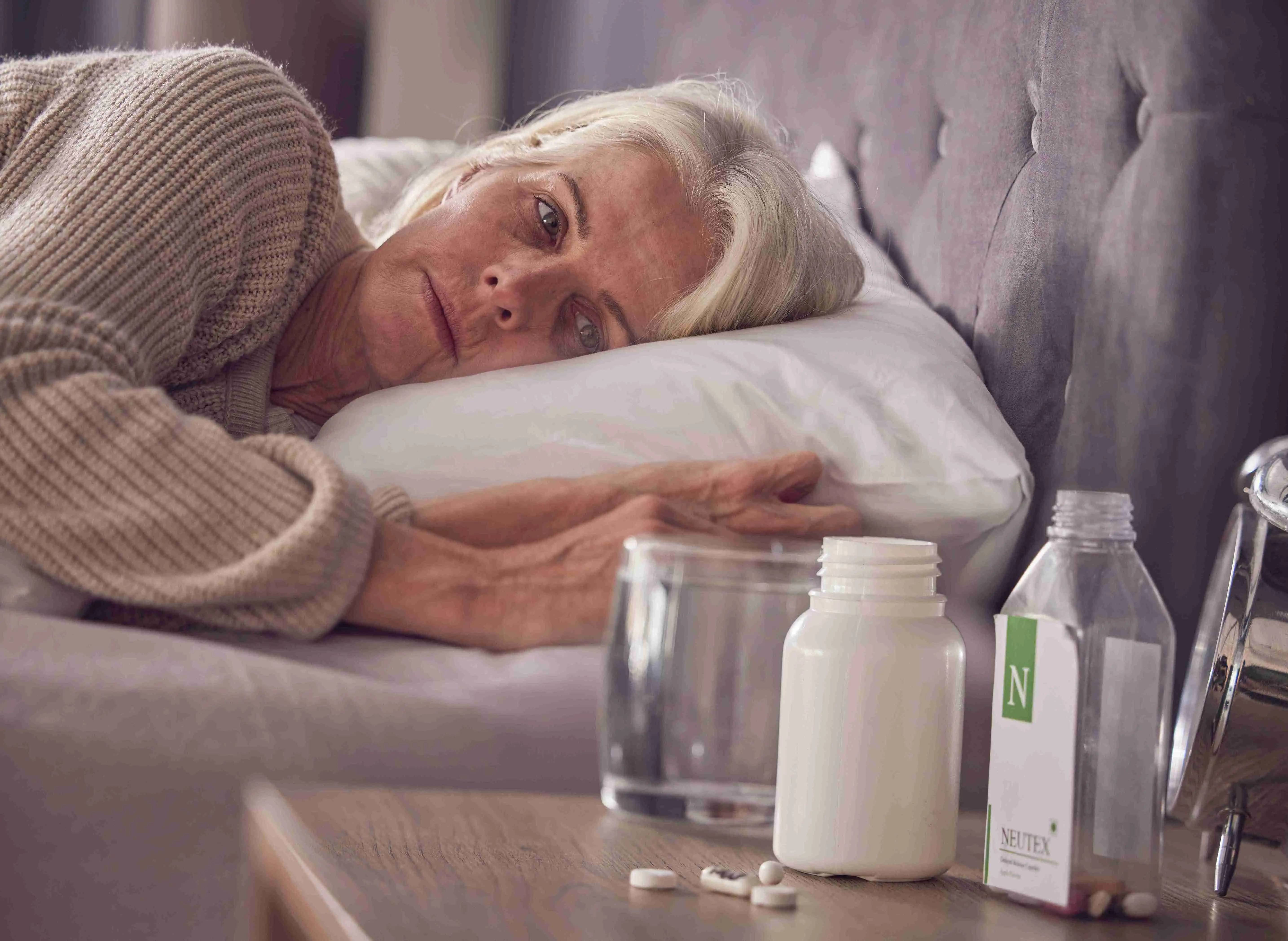
In some cases, medical treatments may be necessary to manage insomnia effectively. These treatments should be discussed with a healthcare professional and may include:
Cognitive-Behavioral Therapy for Insomnia (CBT-I)
CBT-I is considered the first-line treatment for chronic insomnia in older adults. This non-pharmacological approach focuses on identifying and changing thoughts and behaviors that interfere with sleep.
CBT-I typically includes sleep restriction therapy to improve sleep efficiency, stimulus control techniques to associate the bed with sleep, relaxation training to reduce physical and mental tension, and cognitive restructuring to address negative thoughts about sleep.
Prescription Medications
In some cases, healthcare providers may prescribe sleep medication for short-term use. These may include nonbenzodiazepine hypnotics (e.g., zolpidem, eszopiclone), melatonin receptor agonists (e.g., ramelteon), and orexin receptor antagonists (e.g., suvorexant).
It's crucial to note that sleep medications should be used cautiously in older adults due to the increased risk of side effects such as daytime drowsiness, confusion, and falls. They are typically recommended for short-term use only.
Treatment of Underlying Medical Conditions
Many medical conditions can contribute to insomnia in older adults. Treating these underlying issues can often improve sleep quality.
Examples include managing chronic pain conditions, treating sleep apnea with CPAP therapy, addressing hormonal imbalances, and managing neurological conditions like Parkinson's disease.
Herbal Supplements
Some older adults may find relief from insomnia through herbal supplements. Common options include Valerian root, Chamomile tea, Passionflower, and lavender.
While these supplements are generally considered safe, it's important to consult with a healthcare provider before use, as they can interact with medications or have side effects.
Aromatherapy
Aromatherapy using essential oils may help promote relaxation and improve sleep quality. Lavender is known for its potential sleep-promoting effects. Essential oils can be used in diffusers, added to bath water, or applied topically when diluted with a carrier oil.
Acupuncture
Acupuncture may help improve sleep quality in older adults. This traditional Chinese medicine technique involves inserting thin needles into specific points on the body. Some individuals find it helpful as part of a comprehensive sleep management plan.
FAQs
Why do the elderly have trouble sleeping at night?
As people age, they often experience changes in sleep patterns, such as difficulty falling asleep or staying asleep. This can be due to hormonal changes, medical conditions, medications, or lifestyle factors, making insomnia more common in older adults.
How does insomnia affect overall health in older adults?
Chronic insomnia can lead to physical and mental health problems such as fatigue, memory issues, increased risk of falls, weakened immune function, and mood disorders like depression and anxiety.
Can medications cause insomnia in older adults?
Yes, certain medications commonly prescribed to older adults, such as those for blood pressure, heart conditions, and depression, can interfere with sleep. Consulting a doctor about potential side effects can help address this issue.
What lifestyle changes can help older adults manage elderly insomnia?
Regular physical activity, establishing a consistent sleep routine, avoiding caffeine or alcohol close to bedtime, and creating a sleep-friendly environment can help improve sleep quality in older adults and help avoid sleep fragmentation.
When should an older adult seek professional help for sleeplessness in the elderly?
If insomnia persists for more than a few weeks and affects daily functioning, it's important to seek medical advice. A healthcare professional can determine the underlying cause and recommend treatments such as CBT-I, medications, or lifestyle modifications.
What causes insomnia in seniors, and does insomnia get worse with age?
Sleep disorders in the elderly like insomnia can worsen with age due to changes in sleep patterns, decreased production of sleep-regulating hormones (like melatonin), and increased prevalence of medical conditions (e.g., arthritis, sleep apnea) or medications. Older adults also tend to experience more fragmented sleep.
What age group does insomnia affect the most?
Insomnia and other sleep disorders in older adults are most commonly affected by older adults, particularly those aged 60 and above, due to age-related changes in sleep patterns, chronic health conditions, medication use, and breathing difficulties in older adults. However, insomnia can also impact younger age groups, as the insomnia age range is between 18-60, often due to stress, anxiety, and lifestyle factors.
What is the best treatment for insomnia in older adults?
The best treatment for insomnia in older adults is Cognitive Behavioral Therapy for Insomnia (CBT-I), which addresses negative thought patterns and behaviors around sleep. It’s preferred over medication due to fewer side effects.
What causes insomnia in older adults?
Age-related changes in sleep patterns, decreased melatonin production, and an increased prevalence of chronic health conditions like arthritis, heart disease, or sleep apnea are the main causes of insomnia in older adults. Medications, anxiety, depression, and lifestyle factors like reduced physical activity or poor sleep habits also contribute to sleep disturbances.
Conclusion
While insomnia is a challenging issue for many older adults, it’s not an inevitable part of aging. By recognizing the symptoms and addressing underlying causes, whether through lifestyle changes, behavioral therapies, or medical interventions, it is possible to significantly improve sleep quality.
Seeking professional help when necessary and adopting healthy sleep habits can go a long way in enhancing both rest and overall well-being, helping seniors lead more active and fulfilling lives.
Jessica H.
Jessica is a reviewer, writer, and sleep enthusiast at Sleepiverse. Jessica graduated with her master's degree in Nursing research and education. She is a registered nurse and currently works in the Intensive Care Unit. Since becoming a nurse, Jessica has worked the night shift, which means a disrupted sleep schedule. Knowing she needed to function at her best while caring for patients at night, she spent a lot of time researching how to sleep well with a difficult schedule.


